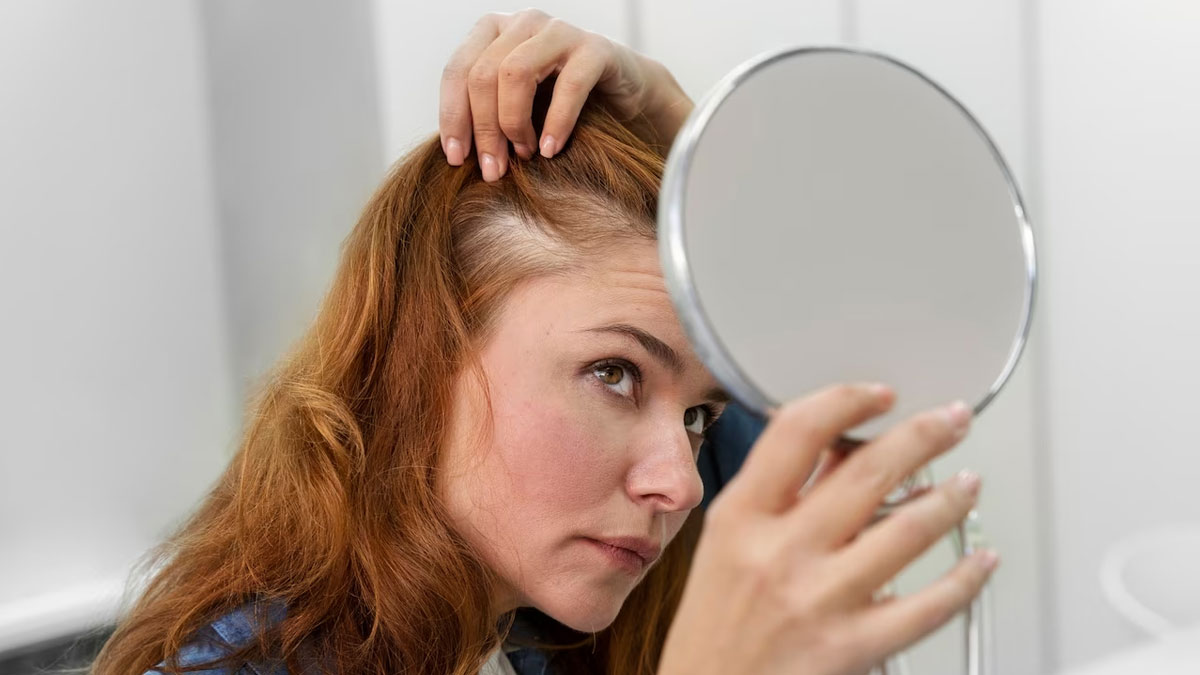
It is assumed that everyone knows how important water is for hydration, digestion, and other body functions. What many people don't realise is that the quality of our water can have an impact on our hair health, particularly in terms of baldness.
Table of Content:-
Baldness is a widespread condition that affects millions of people around the world. Genetics, hormonal changes, drugs, and nutritional deficiencies are all possible causes. Research by the International Journal of Trichology indicates that water quality may also play a role in hair loss.
How Quality Of Water Can Deteriorate Your Hair Health
One key aspect of water quality that can affect hair health is its mineral content. Minerals such as calcium, magnesium, and iron are naturally present in water, which are essential for our health and well-being. However, when present in excess, they can have adverse effects on our hair.
According to Dr Shobha Subramanian Itolikar, Consultant Internal Medicine, Fortis Hospital Mulund, minerals found in hard water like calcium and magnesium produce a coating on the hair and scalp, making it difficult for moisture to penetrate, rendering it dry and lifeless. These minerals also block our hair follicles, leading to reduced production of lubricating sebum, thereby causing an itchy, flaky inflamed scalp. All this contributes to hair fall. Also, the mineral buildup can clog the hair follicles, impeding hair growth and leading to thinning and balding.
Also read: How Excess Consumption Of Tea Can Affect Your Health?
Excessive iron levels in water, known as iron water, can also have detrimental effects on hair. Iron water can create oxidative stress on the scalp, leading to inflammation and damage to the hair follicles. This can result in weakened hair roots, reduced hair growth, and eventually, hair loss.

Can Water Affect The PH Content Of Your Scalp?
The quality of water can also affect the pH level of the scalp. The pH scale measures the acidity or alkalinity of a substance, and our scalp has a natural pH range that is optimal for healthy hair growth. However, when the pH of the scalp is disrupted, it can affect the hair follicles and lead to hair loss. A highly acidic water, which has a low pH, can make the scalp too acidic. This can cause scalp irritation, inflammation, and damage to the hair follicles, leading to baldness.
On the other hand, a highly alkaline water, which has a high pH, can also disrupt the scalp's natural pH balance, making it too alkaline. This can also weaken the hair follicles, resulting in hair loss.

Moreover, the presence of contaminants in water, such as chlorine, can harm hair health. Chlorine is commonly used as a disinfectant in water treatment processes, but it can strip the hair and scalp of their natural oils, causing dryness and damage. Prolonged exposure to chlorinated water can make hair fragile, making it more susceptible to breakage and hair loss.
Solution To Protect Your Hair From Hard Water
“Soft water leads to bouncy healthy tresses. It provides moisture to hair and scalp. Water ingestion (adequate hydration) also leads to a healthy mop of hair and prevents hair fall”, says Dr Subramanian. So, to protect your hair from the potential negative impacts of water quality, take advice from your dermatologist and consider investing in water softeners or filters that can remove excessive minerals or contaminants from your water supply.
Also read: 5 Health Issues Caused Due To Lack Of Sleep, Expert Weighs In
Using pH-balanced shampoos and conditioners can help maintain the optimal pH of your scalp. Ensuring that you are using high-quality water for washing your hair can be a proactive step.
Also watch this video
How we keep this article up to date:
We work with experts and keep a close eye on the latest in health and wellness. Whenever there is a new research or helpful information, we update our articles with accurate and useful advice.
Current Version